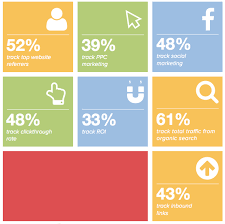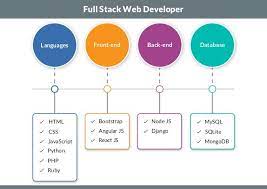Mobile apps development is a rapidly growing industry that has taken the world by storm. With the rise of smartphones and tablets, mobile apps have become an essential part of our daily lives. From ordering food to booking flights, there is a mobile app for almost anything you can think of.
But what does it take to develop a successful mobile app? There are several key aspects that need to be taken into consideration when developing an app. The first and most important factor is usability. Mobile users expect apps to be easy to use and intuitive. This means that the user interface must be designed with the user in mind. It should be easy to navigate and understand, with clear instructions on how to use the app’s features.
The second key factor is performance. A slow or buggy app will quickly turn users away, so it’s important that the code behind an app is well-written and optimized for speed and efficiency. This requires knowledge of coding languages such as Java or Swift, as well as experience in debugging and optimization techniques.
The third factor is security. Mobile apps often store sensitive information such as passwords or payment information, so it’s important to make sure that this data is secure from malicious actors. This means using secure coding practices such as encryption and authentication measures, as well as making sure that any data stored on a device is encrypted properly.
Finally, there’s marketing and promotion. No matter how great an app may be, if nobody knows about it then nobody will use it! That’s why it’s important to think about how you’re going to get your app out there: through social media campaigns, SEO optimization, or even paid advertising if necessary.
In conclusion, developing a successful mobile app takes more than just writing code: it requires careful planning and execution across multiple aspects such as usability, performance, security, and marketing & promotion in order for your app to stand out from the crowd!
8 Tips for Developing Mobile Apps
- Plan ahead: Before you start developing your app, make sure to create a detailed plan that outlines the purpose of the app, its features, and how it will be monetized.
- Research your market: Understand who your target users are and what they need out of an app. This will help you design an effective solution that meets their needs.
- Choose the right platform: Decide which platform you want to develop for—iOS or Android—based on who your target audience is and what type of device they use most often.
- Design with user experience in mind: Keep the user experience in mind when designing the interface of your app so it’s intuitive and easy to use for all users.
- Test early and often: Don’t wait until after development is finished before testing; instead, test frequently throughout the process so any potential issues can be identified early on and addressed quickly.
- Optimize for performance: Make sure your app runs smoothly by optimizing its performance throughout development so it doesn’t lag or crash when used by real users in production environments.
- Incorporate security measures: Incorporate security measures into your mobile app development process such as encryption, authentication, authorization, etc., to protect user data from unauthorized access or malicious attacks from hackers or other third parties trying to gain access to sensitive information stored within the app itself or on external servers/databases associated with it..
- Monitor usage analytics : Monitor usage analytics after launch so you can identify areas where improvements can be made based on how people are using (or not using) certain features within the application itself
Plan ahead: Before you start developing your app, make sure to create a detailed plan that outlines the purpose of the app, its features, and how it will be monetized.
Mobile app development is becoming increasingly popular with businesses as a way to reach more customers and increase revenue. However, it is important to remember that developing an app is not something that should be taken lightly. Creating an effective app requires careful planning and thought.
Before you start developing your app, it is important to create a detailed plan that outlines the purpose of the app, its features, and how it will be monetized. This plan should include a timeline for the development process, a list of features you want to include in the app, and any monetization strategies you plan to use. It is also important to consider how users will interact with your app and how they will find it in the various app stores.
Once you have created your detailed plan, you can then begin developing your app. This process can be complex and time consuming, but following a well-thought-out plan can help ensure that everything goes smoothly and that your final product meets all of your expectations.
By taking the time to properly plan ahead before beginning development on your mobile app, you can ensure that it will be successful when released into the marketplace.
Research your market: Understand who your target users are and what they need out of an app. This will help you design an effective solution that meets their needs.
When it comes to developing mobile apps, research is essential. Knowing who your target users are and what they need out of an app is key to designing an effective solution that meets their needs.
Researching your market can be done in a variety of ways. Surveys, focus groups, and customer interviews are all great ways to get insight into the needs of your target users. Additionally, analyzing your competitors’ apps can give you an idea of what features and functionalities are important for your users.
Once you have a good understanding of who your target users are and what they need from an app, you can begin to design a solution that meets their needs. This includes deciding on the features and functionalities that will be included in the app as well as how those features will work together to create an effective user experience.
By researching your market and understanding the needs of your target users, you can create a mobile app that meets those needs effectively and provides a great user experience.
Choose the right platform: Decide which platform you want to develop for—iOS or Android—based on who your target audience is and what type of device they use most often.
In the ever-evolving world of mobile app development, choosing the right platform is essential to success. When deciding between iOS and Android, it’s important to consider who your target audience is and what type of device they use most often.
For example, if you’re targeting a younger demographic, then developing an app for iOS might be the best choice. This is because younger generations tend to use Apple products more often than Android devices. On the other hand, if you’re targeting a more mature demographic, then Android may be the better choice since older generations are more likely to have an Android device.
It’s also important to consider what type of features you want in your app. For example, if you need access to certain hardware or software features that are only available on one platform, then this should be taken into consideration when making your decision.
Finally, it’s important to keep in mind that developing an app for both platforms can be costly and time consuming. Therefore, it’s important to weigh all of your options before deciding which platform is right for you and your target audience. By taking the time to research and make an informed decision about which platform is best suited for your needs, you can ensure that your app will reach its full potential and be successful.
Design with user experience in mind: Keep the user experience in mind when designing the interface of your app so it’s intuitive and easy to use for all users.
Creating a successful mobile app requires more than just a good idea and coding skills. To ensure your app is well-received by users, you need to design it with user experience in mind. This means designing an intuitive interface that is easy to use for all users.
When designing the interface of your app, consider the user journey and how people interact with the app. Ask yourself questions such as: How will users navigate through the app? What are the key features that need to be highlighted? How can I make this process easier for users?
Keep in mind that people have different preferences when it comes to interacting with apps, so make sure your design caters to all types of users. For example, if you are creating an e-commerce app, provide multiple payment options so users can choose their preferred method.
In addition to being intuitive and easy to use, your mobile app should also be visually appealing. Use colors, typography, and images that reflect the purpose of your app and create a pleasant user experience.
By taking user experience into consideration when designing your mobile app, you can create an enjoyable experience for all users. This will help you stand out from competitors and increase user engagement with your app.
Test early and often: Don’t wait until after development is finished before testing; instead, test frequently throughout the process so any potential issues can be identified early on and addressed quickly.
Mobile apps development is a complex and time-consuming process. It is important to test the app throughout the development process in order to identify any potential issues and address them quickly.
Testing early and often is an essential part of the development process. By testing regularly, issues can be identified early on and addressed before they become more serious. This helps ensure that the app works correctly when released to the public.
Testing should include both functional testing, which checks that all features of the app are working correctly, and usability testing, which checks that users can easily navigate through the app. This helps ensure that users have a positive experience with the app.
By testing early and often, mobile apps developers can ensure that their apps are of high quality when released to the public. Testing should be an integral part of any mobile apps development process in order to guarantee a successful outcome.
Optimize for performance: Make sure your app runs smoothly by optimizing its performance throughout development so it doesn’t lag or crash when used by real users in production environments.
Performance optimization is an essential part of mobile app development. It ensures that your app runs smoothly and doesn’t crash or lag when used by real users in production environments.
Performance optimization involves a range of activities, such as analyzing the code for potential issues, optimizing data structures and algorithms, and testing the app on different devices and operating systems. It also requires you to identify performance bottlenecks, such as slow loading times or excessive battery usage, and address them accordingly.
To optimize your app’s performance, you should start by ensuring that your code is clean and well-structured. This will make it easier to identify potential issues quickly. You should also use tools like profilers to measure the performance of your app in different scenarios. This will help you identify areas where you can improve performance, such as reducing memory usage or improving loading times.
Finally, it’s important to test your app on different devices and operating systems to ensure that it performs well across all platforms. This will help you catch any potential issues before they become serious problems for real users in production environments.
Performance optimization is an important part of mobile app development and should not be overlooked. By taking the time to optimize your app’s performance throughout development, you can ensure that it runs smoothly when used by real users in production environments.
Incorporate security measures: Incorporate security measures into your mobile app development process such as encryption, authentication, authorization, etc., to protect user data from unauthorized access or malicious attacks from hackers or other third parties trying to gain access to sensitive information stored within the app itself or on external servers/databases associated with it..
As mobile app development continues to become more and more popular, it is important to ensure that security measures are incorporated into the development process. Encryption, authentication, authorization, and other security measures are necessary to protect user data from unauthorized access or malicious attacks from hackers or other third parties.
Encryption is a process of encoding data so that it cannot be read without a key. This ensures that any data stored within the app itself or on external servers/databases associated with it is kept secure. Authentication is the process of verifying a user’s identity before allowing them access to an application or system. Authorization involves granting users access to certain areas of the application based on their role and privileges within the system.
These security measures help protect user data from being accessed by unauthorized users or malicious attackers. It is important for mobile app developers to take these measures into account when developing their applications in order to ensure that user data remains secure. By incorporating these security measures into the development process, mobile app developers can ensure their applications remain safe and secure for their users.
Monitor usage analytics : Monitor usage analytics after launch so you can identify areas where improvements can be made based on how people are using (or not using) certain features within the application itself
Mobile app development has become increasingly popular in recent years, with businesses of all sizes and industries taking advantage of the technology to improve their customer experience. As such, it is important to ensure that the mobile app you develop meets the needs of your users. One way to do this is to monitor usage analytics after launch.
By monitoring usage analytics, you can gain valuable insights into how people are using (or not using) certain features within the application. This information can then be used to identify areas where improvements can be made or new features can be added. For example, if you notice that a particular feature is not being used as much as expected, you can look into why this is the case and make adjustments accordingly. Additionally, by monitoring usage analytics you can also get an idea of which features are most popular among your users so that you know which ones should be prioritized when making changes or updates.
Overall, monitoring usage analytics after launching a mobile app is an important part of ensuring its success. By doing so, you can gain valuable insights that will help improve the user experience and ensure that your app meets the needs of its users.




